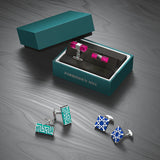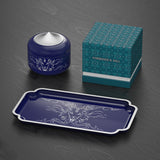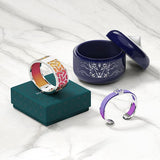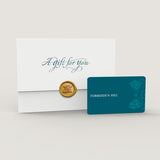Originally an offering of blessings and prayers for Buddhist monks, Songkran has become Thailand’s most famous festival and the biggest water fight in the world. This year, the holiday period extends from 12 April to 16 April, with festivities continuing up to 19 April in some cities. Though the festival’s origins are underpinned by poetic traditions, in many cities, celebrations have taken on a more party feel. If you are contemplating visiting Thailand in mid-April or just curious about Songkran, here’s a quick rundown on the festival’s origins and how it’s celebrated in the country’s main tourist spots.
Why a water festival?
Songkran is Thailand’s traditional new year celebration. In Sanskrit, the word "Songkran", means change or movement and the festival celebrates the passing from an old year into a new one. It is a time when many Thais visit local temples to give alms to monks and spring-clean their homes in preparation for the new year.
Songkran started as a Buddhist tradition, with blessings of scented water poured over monks, and then collected and poured over friends and family to symbolise humility and purification. Apart from the washing away of one's sins, the sprinkling of water has also come to represent the washing away of bad luck. On the first day of Songkran, many Thais perform the ritual of Rod Nam Dum Hua, where scented water is poured on to the palms and feet of parents and other respected elders to ask for their blessings. During Songkran, devout Buddhists will also perform the ceremony of Song Nam Phra, or Bathing the Buddha, where scented water is gently poured over Buddha statues at home or at the temple to wash away bad deeds from the past year and to make a wish for the new year.
Songkran is also the hottest time of year in Thailand, with temperatures climbing above 40 degrees Celsius. Not surprisingly, over the years, the washing ritual evolved, with fun-loving Thais splashing each other with water. Today, this joyous revelry has become a huge water festival celebrated by young and young-at-heart Thais and tourists.
Where is it celebrated?
Traditional celebrations for Songkran still take place in homes and temples all over Thailand, though they will be less obvious to tourists in most cities. In addition, more exuberant water-filled celebrations take place, with many tourist spots marketing their celebrations to attract revellers. So, if you are looking to party or have some prankish fun, here are a few places to consider. But, if you are hoping to soak up more traditional Thai culture, or traveling with small kids, you may want to wait till Songkran is over.
Cosmopolitan party central: Bangkok
During Songkran, many Bangkok residents travel back to their hometowns but in their place, legions of tourists flock to the city. Those searching for epic water fights head to the backpacking area at Khao San Road, or to Silom Road, where the entire road is closed off for Songkran. And as Thailand’s capital city, there is no shortage of spectacular parties and events happening in Bangkok during Songkran, from foam and pool parties to the ever-popular S20 Music Festival.

An ancient drenching: Chiang Mai
In Chiang Mai, you can see various cultural activities during Songkran, such as the procession of Sacred Buddha statues through the streets, with people gently sprinkling water on the statues for cleansing and good luck.
However, Chiang Mai’s Old City is surrounded by an ancient moat which doubles up as a giant water refill station during Songkran, so it is also hard to avoid becoming drenched by super-soaker fights and buckets of water if you are in the area.

Not for the faint-of-heart: Pattaya
In Pattaya, Songkran festivities last the longest in the country, going on for an entire week. The festivities are the biggest on the last day, 19 April, also known as “Wan Lai” which translates to “the flowing day”. Beach Road is closed off to traffic, where stages are set up for live music and foam machines. Pick-up trucks on the other roads turn into mobile parties, with revellers in the back throwing buckets of waters on pedestrians. Add to this a white paste, a mix of talcum powder and water, from revellers’ faces which rubs off on to everything else, Pattaya takes Songkran to the extreme.

Water by the water: Phuket & Koh Samui
At Thailand’s beach towns like Phuket or Koh Samui, you can at least chill out on the scenic beaches before getting drenched in the water fights in town.
In Phuket, Bangla Road is a big draw as it turns into a full-scale water war zone, along with happening parties, bars and clubs. But it comes with tiresome traffic jams, with pick-up trucks everywhere, also filled with revellers throwing water at each other.
In Koh Samui, you can find all-out foam parties and DJs at Chaweng Beach, though you can also stick to quieter beaches such Maenam and Lipa Noi, or head over to the calmer Nathon town for more low-key celebrations.

If you decide to go?
First and foremost, be prepared to get wet any time of the day or night, so take some basic precautions – don’t wear your best clothes and make sure you keep your valuables, like your camera, phone and wallet, in waterproof covers. You can generally get these waterproof covers in convenience stores around town, along with a wide variety of water pistols and super soakers if you want to join in the action. Occasionally, other than water, you may get spattered with the white chalk/talcum powder mixture, which is a bit irritating if you get it in your eyes, but it’s nothing serious. And finally be safe, choose your mode of transport wisely and watch out for the water on the pavements and roads.
Beyond the mayhem, an atmosphere of friendliness and inclusivity fills the streets during Songkran. So if you do decide to go, greet everyone that you see with ‘Sawadee Bpee Mai’ which means ‘Happy New Year’ in Thai, and don’t forget to smile and soak in the festive spirit as you get totally soaked.
Cover image: Songkran in Ayutthaya, Thailand (Image credit: JJ Harrison via Wikimedia Commons)










































